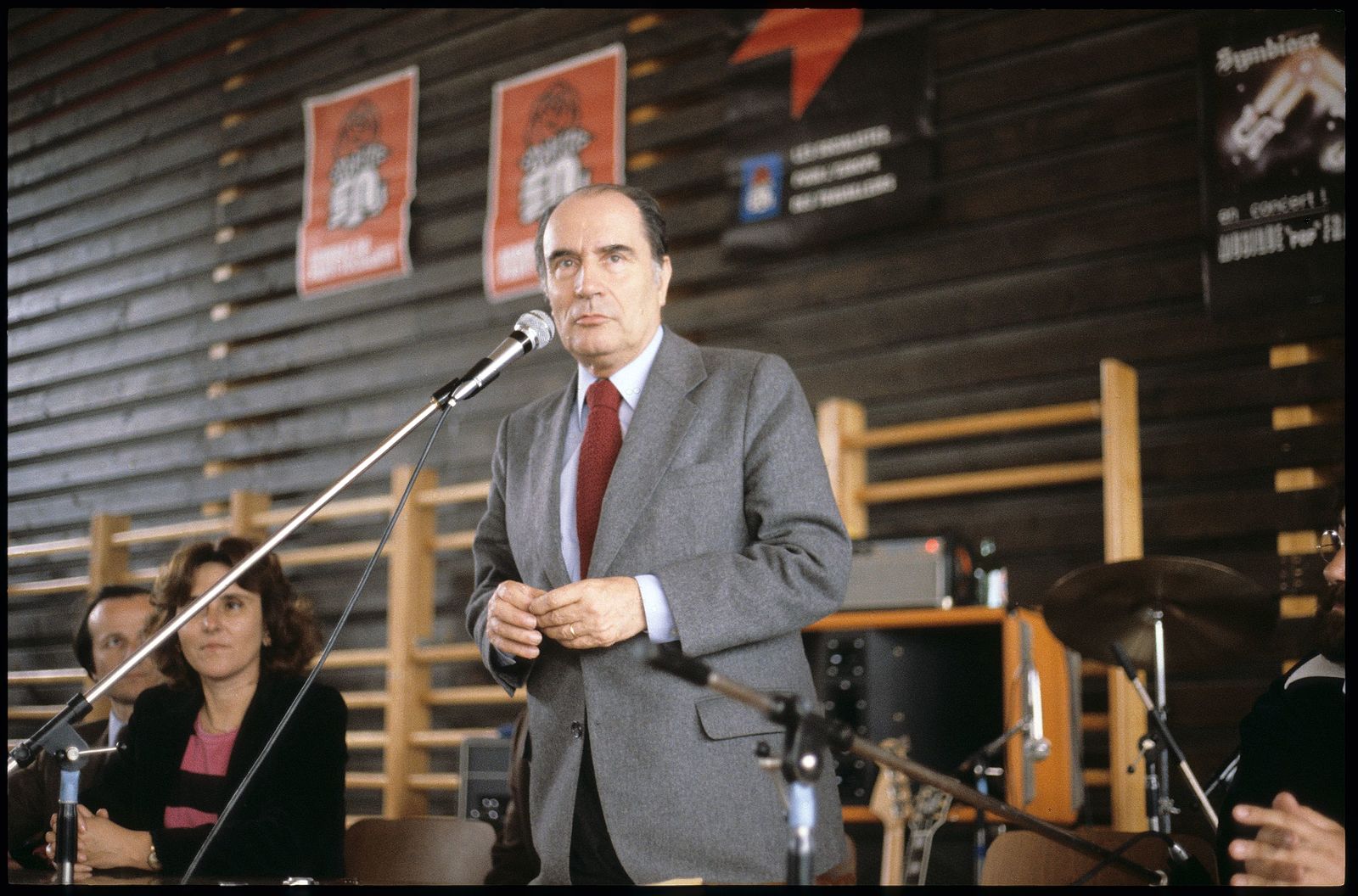PARIS (AFP) — "It's not death that scares me, but not being alive," said Francois Mitterrand the day he passed away on January 8, 1996, eight months after stepping down as France's president.
But a quarter of a century later the enigmatic leader they called "The Sphinx" still fascinates France — in particular, the bombshell revelations about his illegitimate daughter and the illness he kept hidden as a "state secret" for 11 years.
Double life
During his two terms in office France's first Socialist president had overseen the end of the death penalty, the decriminalization of homosexuality and grand architectural projects that remade the capital. An ailing Mitterrand spent his last days in Paris bedridden in his apartment near the Eiffel Tower.
His entourage knew it was the end. The 79-year-old had stopped eating and ended his treatment for advanced prostate cancer.
Weeks earlier Mitterrand had spent his final Christmas in Egypt with Mazarine Pingeot — a young woman who, the French public had learned a year before, was his daughter from a decades-long affair.
Over the New Year Mitterrand was back with his "official" family — his wife Danielle and their two sons, Jean-Christophe and Gilbert — at their country home in the southwestern Landes region.
On the night of January 7, Danielle came to visit Mitterrand in the apartment where he was staying with Anne Pingeot, his mistress of more than 30 years.
Anne held his hand till the end. He died peacefully in the early morning of January 8. The doctor then called Danielle.
The government confirmed his death at 10:55 am and AFP broke the news: "Mitterrand is dead."
Jacques Chirac, French president at the time, cancelled his appointments while radio stations and television channels interrupted their schedules.
The statesman
Visitors flocked to the apartment. Politicians, artists and friends all came to pay their respects and see Mitterrand's body lying in a dark room beneath an engraving of Venice. Outside, the public laid flowers.
Tributes flooded in for the "great statesman", and his "courage" confronting a cancer he had for the whole 14 years he spent in power in the Elysee Palace.
German Chancellor Helmut Kohl, who 10 years earlier had held hands with Mitterrand in a landmark gesture of reconciliation between the two countries at a ceremony in Verdun, mourned the passing of a "faithful friend.”
Hidden illness
Rumors of Mitterrand's double life had run a long time, but the truth was only revealed to the public in 1994 with a photo scoop on the cover of Paris-Match magazine showing the president with a young woman who looked a great deal like him.
She was, the public discovered, Mitterrand's daughter Mazarine from his affair with Anne.
At Mitterrand's funeral, the two lives came together dramatically.
January 11 was a day of national mourning. Flags at half mast, a minute's silence in schools, the ceremony broadcast live from Notre-Dame with 60 heads of state or government from Kohl to Fidel Castro in attendance.
But all this was eclipsed by what happened at the private ceremony in Jarnac, Mitterrand's native town in the southwest Charente region.
Here Mitterrand's two families walked side-by-side to the cemetery —Danielle with her two sons, Anne and Mazarine.
When Danielle took Mazarine in her arms, the image went around the world.
"Francois was the father of my sons, I was his wife," said Danielle. "As for Mazarine, she is her father's daughter and that's it."
More secrets
Days later, more revelations.
Paris-Match on January 16 published an unauthorized photo of Mitterrand on his deathbed with extracts from a new book by a former doctor claiming Mitterrand had "cancer that had spread to the bones" as early as 1981 when he was first elected president.
The public had only been told of the prostate cancer in 1992.
For his last six months in the Elysee, he was "no longer capable of governing," the doctor said.
Politicians on all sides slammed the violation of medical confidentiality.
But the media called out "cheating" in the president's health reports.
The family sued and the book was banned.
by Frédéric DUMOULIN
© Agence France-Presse
Subscribe to Closing Arguments
Sign up for new weekly newsletter Closing Arguments to get the latest about ongoing trials, major litigation and hot cases and rulings in courthouses around the U.S. and the world.









